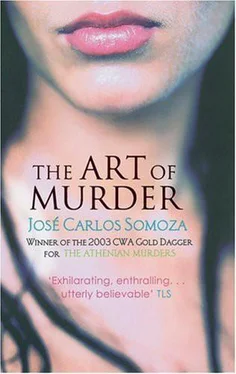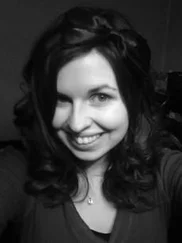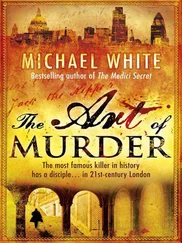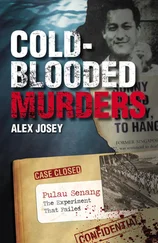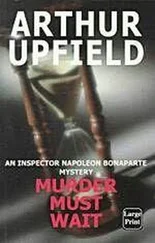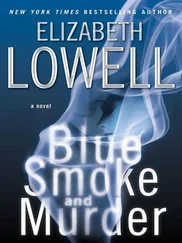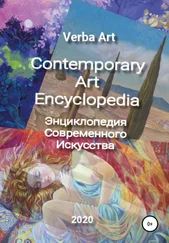Jose Somoza - Art of Murder
Здесь есть возможность читать онлайн «Jose Somoza - Art of Murder» весь текст электронной книги совершенно бесплатно (целиком полную версию без сокращений). В некоторых случаях можно слушать аудио, скачать через торрент в формате fb2 и присутствует краткое содержание. Жанр: Триллер, на английском языке. Описание произведения, (предисловие) а так же отзывы посетителей доступны на портале библиотеки ЛибКат.
- Название:Art of Murder
- Автор:
- Жанр:
- Год:неизвестен
- ISBN:нет данных
- Рейтинг книги:4 / 5. Голосов: 1
-
Избранное:Добавить в избранное
- Отзывы:
-
Ваша оценка:
- 80
- 1
- 2
- 3
- 4
- 5
Art of Murder: краткое содержание, описание и аннотация
Предлагаем к чтению аннотацию, описание, краткое содержание или предисловие (зависит от того, что написал сам автор книги «Art of Murder»). Если вы не нашли необходимую информацию о книге — напишите в комментариях, мы постараемся отыскать её.
Art of Murder — читать онлайн бесплатно полную книгу (весь текст) целиком
Ниже представлен текст книги, разбитый по страницам. Система сохранения места последней прочитанной страницы, позволяет с удобством читать онлайн бесплатно книгу «Art of Murder», без необходимости каждый раз заново искать на чём Вы остановились. Поставьте закладку, и сможете в любой момент перейти на страницу, на которой закончили чтение.
Интервал:
Закладка:
So it was true the Maestro gave all the works a final check, just as Gerardo had told her. The shadow flitted from figure to figure, giving instructions to the Elders as well in words she could not make out. Then the shoes came back, like strange patent leather animals, mysterious sharks with polished snouts sniffing at her body. A moment's pause, then they turned away. All that was left were echoes. Then the enchanted silence.
Clara went on contemplating the distant cameo with its painted features.
17.30.
The darkness was complete.
'What now?' Bosch asked nervously, staring at his screen. 'Why don't they light the stupid lamps?'
'They're waiting for Van Tysch to give the order,' Nikki replied. 'It won't be long now,' said Osterbrock.
They turned back to the monitors. A silhouette stood out from all the others, motionless, back to the camera. Torch beams picked it out fleetingly.
'The great panjandrum,' Ronald moaned, devouring the image with the same eager hunger as he polished off his doughnuts.
Every moment needs its setting, thought Bosch. This was a world in which valuable things had become solemn. And all solemnity requires a setting, a ritual, and lofty personages up on podiums admired by fascinated, open-mouthed people. Nothing can be done naturally: artifice, some degree of art is always necessary. Why not light the lights? Why not let the public in? After all, it was only a question of pressing a few buttons. But no. This is a solemn moment. It has to be registered, collected, recorded, made eternal. It has to be long-drawn-out.
'They're taking photos of him,' Nikki commented, chin in hands. Bosch noted a dreamy tone to her words.
Van Tysch had been illuminated by a slanting spotlight: he was an island of light in five hundred metres of twisting darkness. He had his back to the camera. His kingdom was not of this or any other world, thought Bosch. His kingdom was himself, all alone, in the middle of that glittering lake. Shadowy sorcerers blessed him with their magic rays. The painter raised his right arm. Everyone held their breath.
'Moses parting the waters.' Ronald displayed his sarcasm once again.
'Well, something's not working,' Osterbrock said, 'because the Tunnel is still dark.'
'No,' Martine cut in, leaning over his shoulder. 'The signal is when he lowers his arm.'
Bosch looked across at all the screens: they were dark. He was worried that the Tunnel was in darkness for so long. The 'great panjandrum' had demanded it. Before the start of this sabbath, the witches had to honour him with their will-o'-the-wisps. Then when the photo and filming session was over, Satan would lower his paw and his very own inferno would start, his abominable, fearful inferno, the most terrible of all because no one knew it for what it was. Because the worst thing about hell is not knowing if you are already in it. The arm descended.
The three hundred and sixty filaments designed by Igor Popotkin lit as one, their light-filled mouths yawning. For a moment, Bosch thought the paintings had disappeared. But they were still there, only transformed. As though a majestic brush had endowed them with just the touch of gold they needed. The paintings were burning in an ill-defined bonfire. Framed by the TV screens, they looked like classical canvases, but with figures that had depth and volume, had been given a life of dimensions. The backgrounds stood out, the mist took on the air of a landscape.
'My God,' said Nikki. 'It's more beautiful than I could have imagined.'
Nobody replied, but the silence seemed to contain tacit approval of her words. Bosch did not agree.
It was not beautiful. It was grotesque, terrifying. The sight of Rembrandt's works transformed into living beings did arouse an emotion, but to Bosch this was not the product of beauty. It was obvious that Van Tysch had reached the limit: no one could go any further in human painting. But the path he had chosen was not that of aesthetics.
There was nothing beautiful in the crucified man, in the young girl leaning on a windowsill, face as pale as death, in the feast in which the dishes were people, in the naked woman with her red-painted hair spied on by two grotesque individuals, in the silhouette of the girl with phosphorescent eyes, the boy wrapped in painted furs, the angel strangling the kneeling man. There was nothing beautiful in them, but nothing human either. And the worst of it was that it all seemed to accuse Rembrandt as much as Van Tysch. It was a sin shared by both men. Here before you is the negation of humanity, the two artists seemed to be saying. Condemned for being what they were. In a night of horror, mankind invented art. This is our condemnation, thought Bosch.
'Hats off to him, no doubt about that,' a voice said after an endless silence. It was Ronald.
On the screen, Stein raised his hands and applauded. Violently, almost furiously. But there was no sound, which made the clapping on the screen look like a silent convulsion. Hoffmann, Benoit and the physicist Popotkin joined in. Soon all the figures around Van Tysch were clapping their hands like frenzied dolls.
The first to follow suit inside the Portakabin was Martine. As they beat together, her slender, flexible palms sounded like gunshots. Osterbrock and Nikki added their excited burst of clapping. Ronald's applause though was muffled, as if bubbles were escaping from his pudgy hands. All this noise in the confined space of the Portakabin deafened Bosch. He could see Nikki's cheeks were on fire.
What were they applauding? Good God, what were they applauding, and why? Welcome to madness. Welcome to humanity.
He did not want to be the exception, to be the odd one out: he hated drawing attention to himself. He told himself he had to stay within the picture frame. He beat his hands together and produced sounds.
27.35.
In Portakabin A, Alfred van Hoore was sitting in front of the monitor focused outside the Tunnel, observing the deployment of what Rita had baptised the 'parrot brigade'. His Artistic Emergency Team was waiting in Museumplein. They were green-and-white phantoms with yellow oilskins standing beside the evacuation vehicles. Van Hoore knew it was highly unlikely they would be needed, but at least his idea had won the approval of Benoit, and even of Stein himself. You had to start somewhere. In firms like the Foundation you had to come up with new proposals.
'Paul?' Van Hoore spoke into the microphone.
'Yes, Alfred,' he heard Spaalze's voice boom in his headphones.
Paul Spaalze was the captain of this improvised team. Van Hoore had put complete trust in him. They had previously worked together on coordinating security for exhibitions in the Middle East, and Van Hoore knew Spaalze was one of those who 'act first and worry about it afterwards'. This meant he was not someone for making long-term plans, but who was indispensable at moments of crisis.
'Less than half an hour before the flock troops in,' Van Hoore said, through a storm of interference. 'How is everything going out there, Paul?'
It was a rather useless question, because Van Hoore could see from the monitor that 'out there' everything was fine, but he wanted Spaalze to know he was watching things closely. He had spent many long hours designing emergency evacuation procedures on his computer, and he did not want his captain to lose heart from having nothing to do.
'Well, you know,' Spaalze roared. 'The worst catastrophe I'm facing at the moment is the possibility of a mutiny. Did you know they made us sing like sopranos for the voice identity checks, and to touch the screens as though we were paintings before they would let us into the blasted central square? My men didn't like that at all.'
'Orders from above,' said Van Hoore. 'If it's any consolation to you, Rita and I had to undergo the same torture.'
Читать дальшеИнтервал:
Закладка:
Похожие книги на «Art of Murder»
Представляем Вашему вниманию похожие книги на «Art of Murder» списком для выбора. Мы отобрали схожую по названию и смыслу литературу в надежде предоставить читателям больше вариантов отыскать новые, интересные, ещё непрочитанные произведения.
Обсуждение, отзывы о книге «Art of Murder» и просто собственные мнения читателей. Оставьте ваши комментарии, напишите, что Вы думаете о произведении, его смысле или главных героях. Укажите что конкретно понравилось, а что нет, и почему Вы так считаете.
